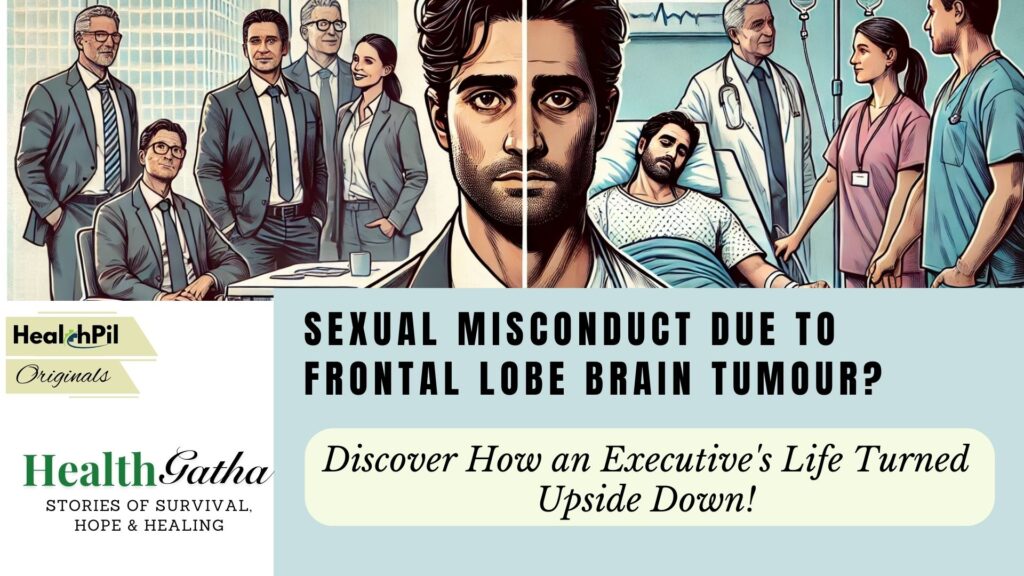Frontal Lobe Tumour Leading to Behavioral Changes
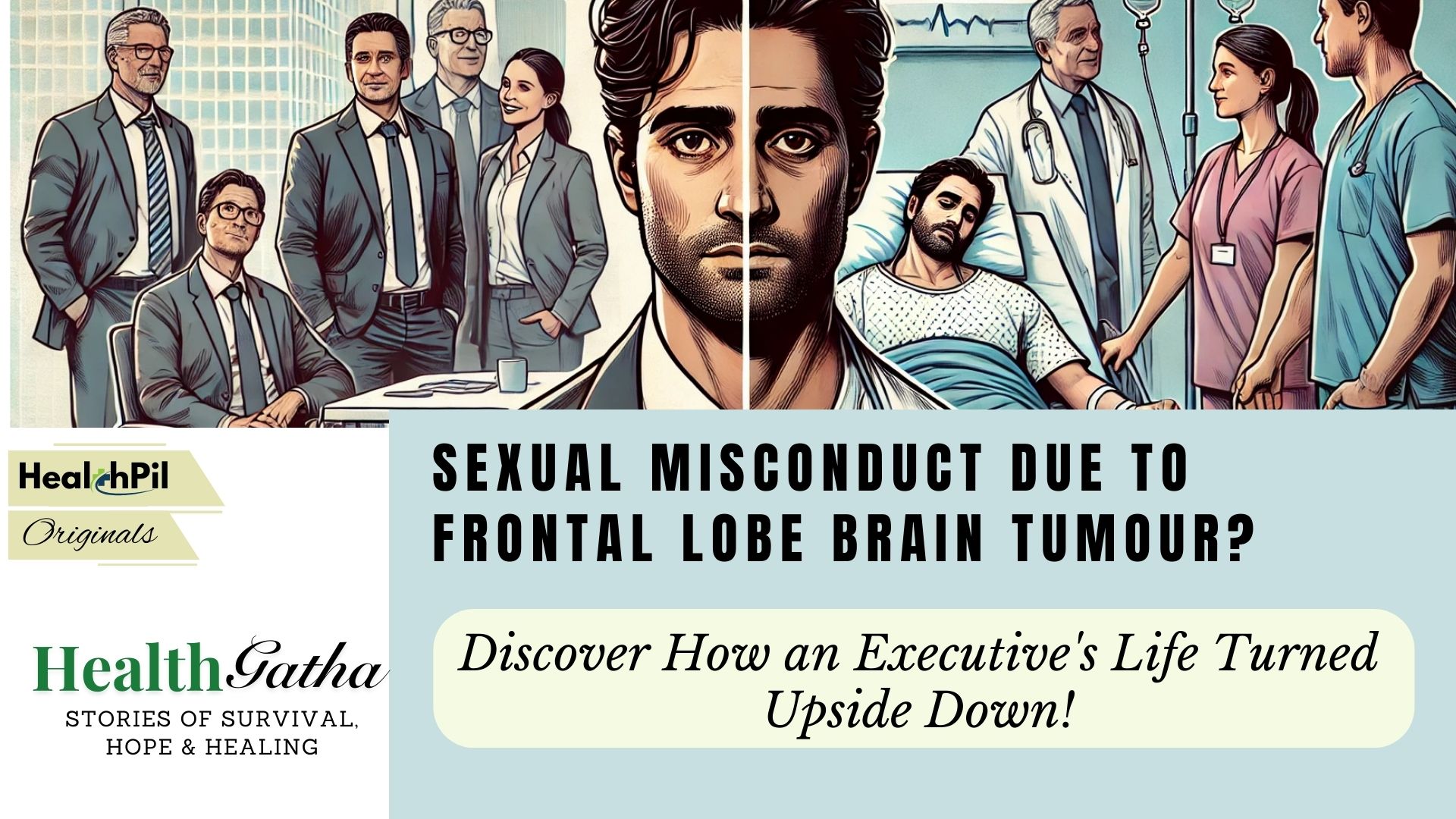
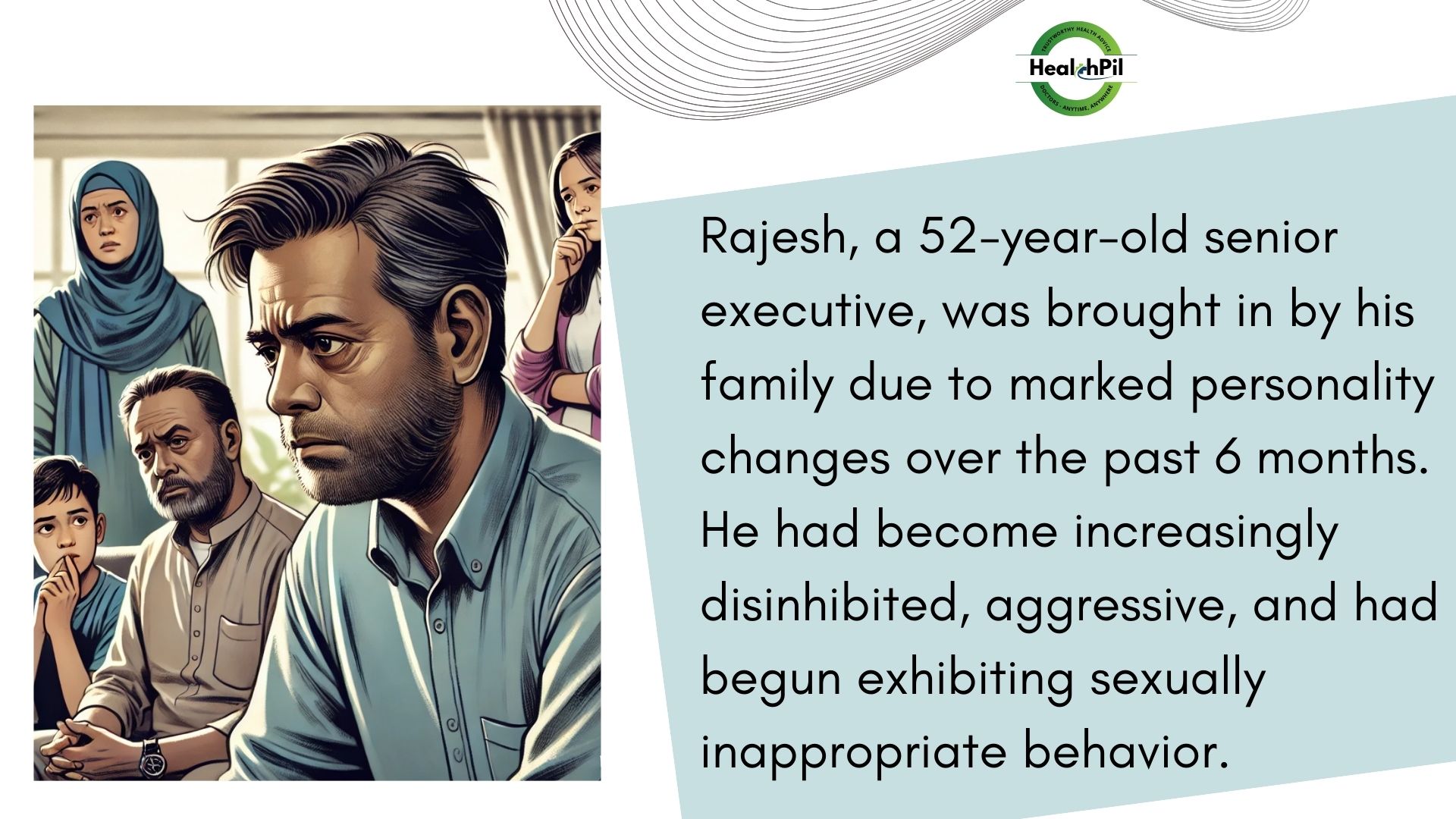
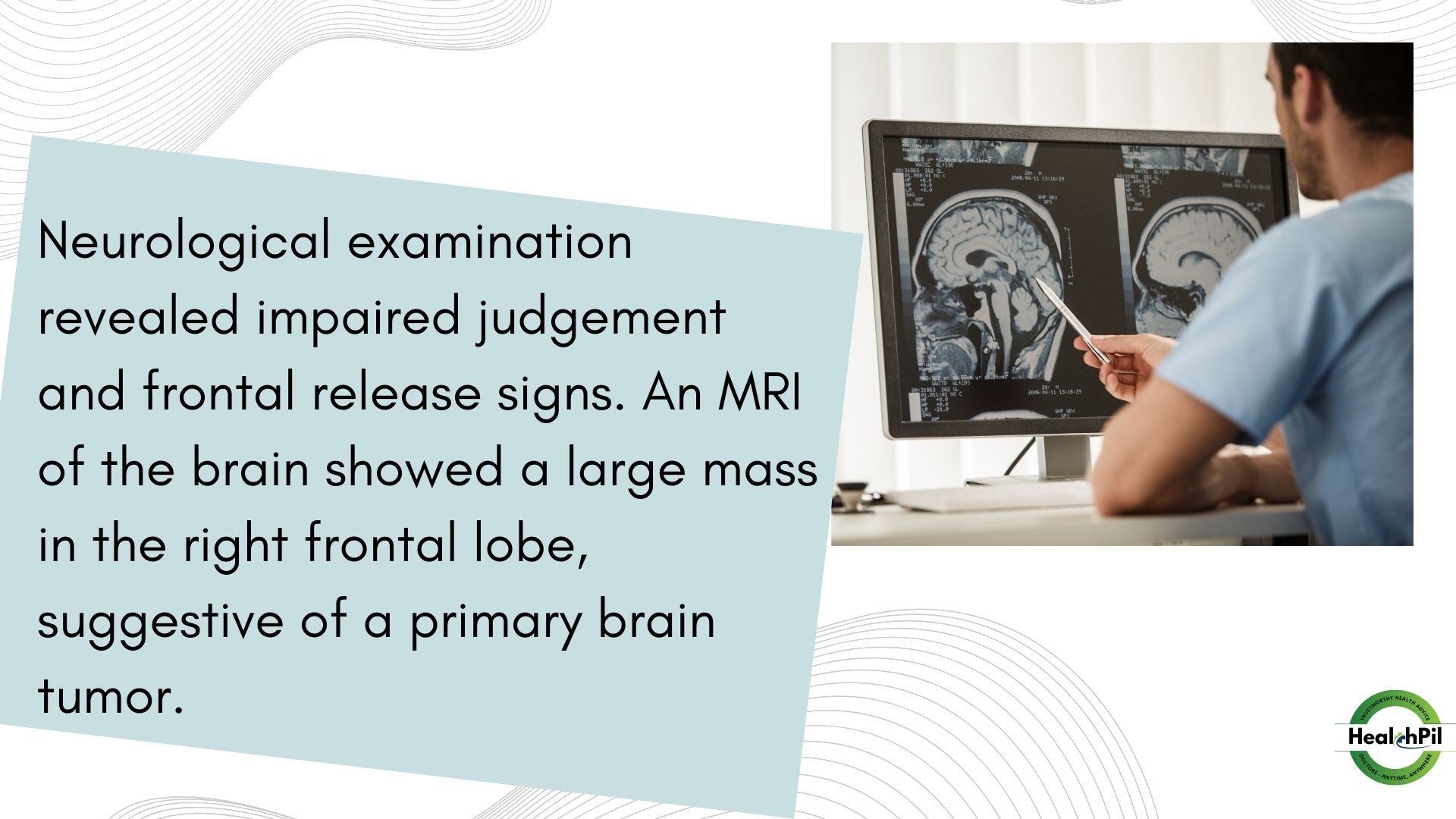
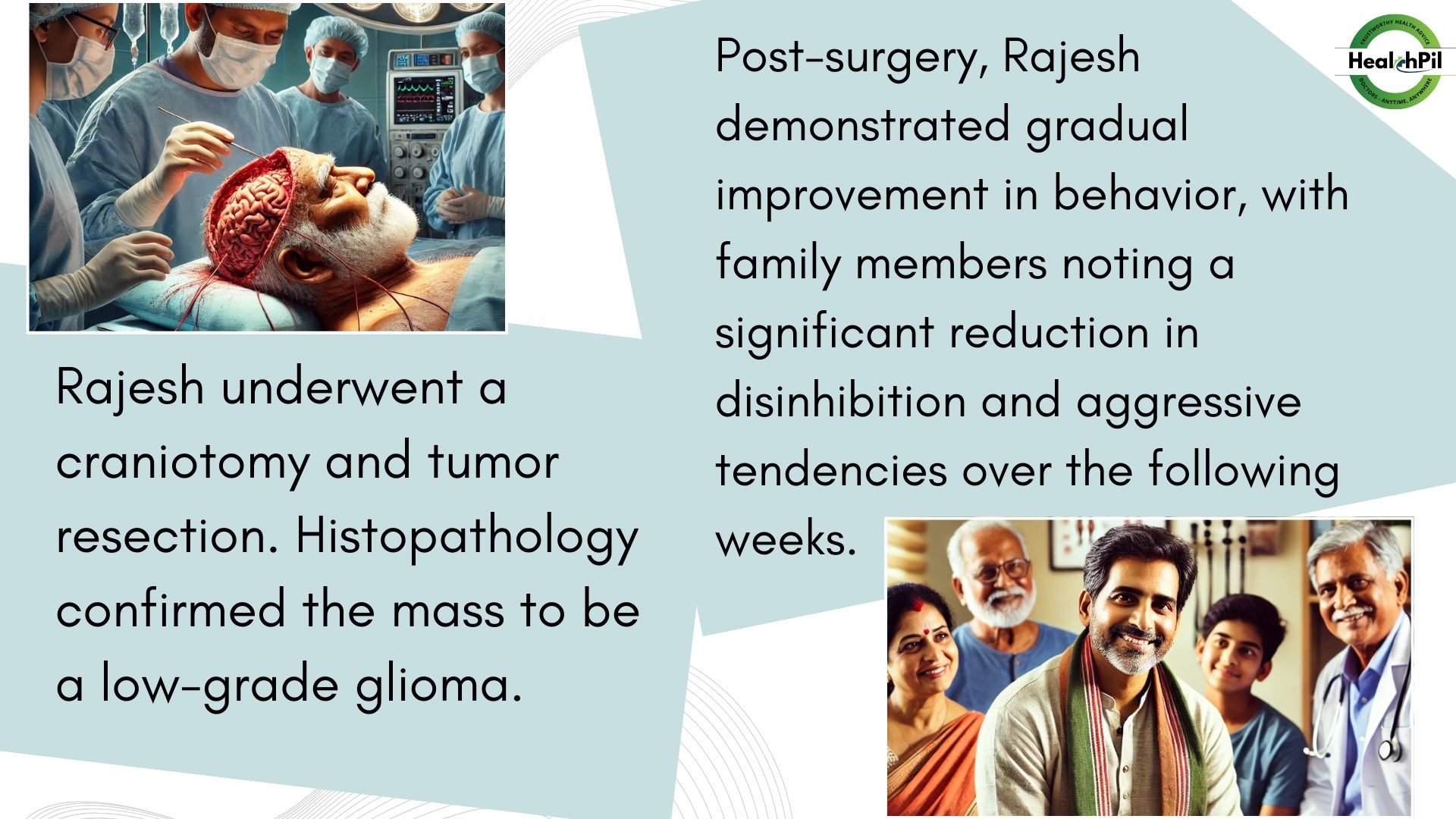
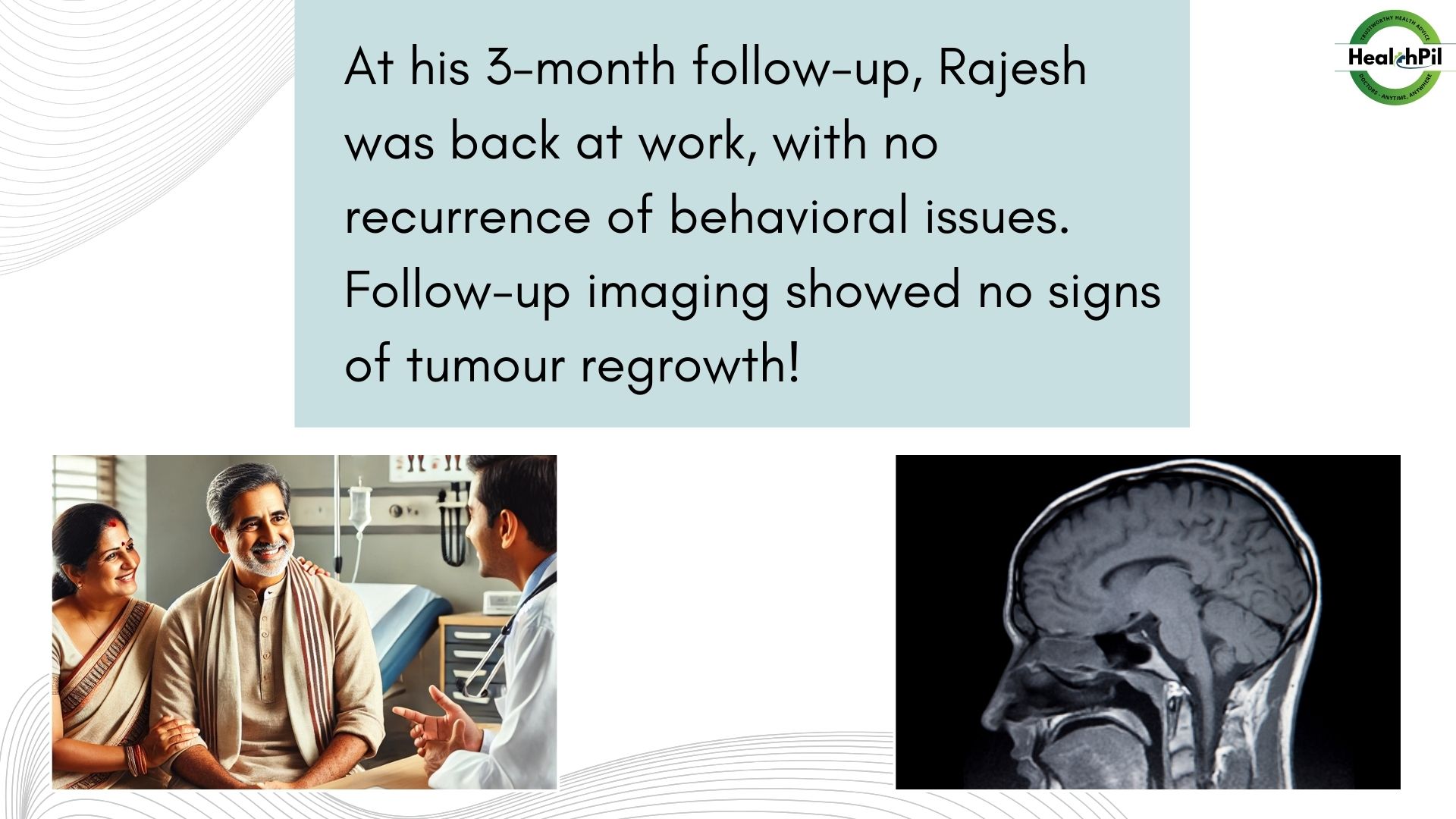

Rajesh, a 52-year-old senior executive, was known for his calm demeanour and sharp decision-making. But over six months, something changed—drastically. He became aggressive, impulsive, and began exhibiting sexually inappropriate behaviour, shocking his family and colleagues. Everyone assumed it was stress from work, but the truth was far more serious: a frontal lobe tumor.
What started as subtle personality changes almost went unnoticed. Thankfully, his family sought medical help in time, leading to a diagnosis that saved his life. Could this happen to someone you know?
The Patient’s Journey: A Tumour Hiding Behind Behavioural Symptoms
Rajesh’s behaviour had spiralled—he was disinhibited, erratic, and uncharacteristically aggressive. His family, alarmed, took him to a specialist. A detailed neurological examination revealed poor judgement and frontal release signs.
An MRI scan uncovered the hidden culprit: a large mass in his right frontal lobe. This tumor was interfering with the very part of his brain that controlled his personality, emotions, and social behavior.
Rajesh underwent a craniotomy and tumour resection. The mass was confirmed to be a low-grade glioma, a slow-growing but potentially life-altering tumor. Post-surgery, his personality and behaviour gradually returned to normal. Three months later, Rajesh was back at work, healthy, with no signs of tumour regrowth.
Could It Be a Frontal Lobe Tumour?
Frontal lobe tumors are tricky—they often mimic psychiatric or stress-related conditions. Spotting the signs early can change everything:
● Aggression, irritability, and impulsive actions.
● Behaviours that may feel socially or sexually inappropriate.
● Poor decision-making and impaired judgement.
● Difficulty concentrating or forgetfulness.
● Apathy, lack of motivation, or mood swings.
● Reflex abnormalities (frontal release signs).
● Weakness or speech difficulties in advanced cases.
The Importance of Timely Diagnosis
Behavioural symptoms like Rajesh’s are often dismissed as stress, but they can be the first clue to a serious underlying condition. Early diagnosis is critical to prevent permanent damage.
● Imaging: An MRI or CT scan is key to identifying brain tumours.
● Histopathology: Analysis of the tumour confirms its type, helping guide treatment.
Treatment and Recovery
For most frontal lobe tumours, including Rajesh’s low-grade glioma, surgery is the primary treatment.
- A craniotomy and tumour resection help remove the mass and relieve pressure on the brain.
- Behavioural symptoms typically start improving within weeks after surgery.
- Regular imaging is essential to monitor for any signs of tumour regrowth.
Why Behavioral Changes Should Never Be Ignored
Rajesh’s story highlights a crucial lesson: personality changes and cognitive decline aren’t always “just stress.” Ignoring them can delay life-saving treatment. If someone you know is showing unusual aggression, impulsivity, or disinhibition, it’s time to ask the hard questions and seek expert help.
FAQ : Frontal Lobe Tumours and Behavioral Changes
How do frontal lobe tumours affect behaviour?
The frontal lobe controls personality, judgement, and social behaviour. Tumours in this area can cause changes like disinhibition, aggression, and poor decision-making.
What are the treatment options for frontal lobe tumours?
Treatment usually involves surgical resection, and in some cases, radiation or chemotherapy depending on the tumour type.
Can behaviour improve after tumour removal?
Yes, many patients show significant behavioural improvement after the tumour is resected.
What is the prognosis for low-grade gliomas?
Prognosis is generally favourable with surgical resection, but close follow-up is necessary to monitor for recurrence.
How HealthPil Can Help
At HealthPil, we understand how difficult it is to navigate behavioural and cognitive symptoms. That’s why we’re here to provide:
● Expert Consultations: Access neurologists and neurosurgeons trained to spot the subtle signs of brain tumours.
● Evidence-Based Care: From diagnosis to treatment and follow-up, we guide you every step of the way.
● Compassionate Support: Helping families understand and manage the emotional challenges of these conditions.
Disclaimer
This article is for informational purposes only and does not substitute professional medical advice. Always consult a qualified healthcare provider for diagnosis and treatment.
Notice unexplained behavior changes in a loved one? Don’t wait. Connect with HealthPil today for expert guidance and a path to recovery. Ignoring the signs could mean missing the chance to save a life.

